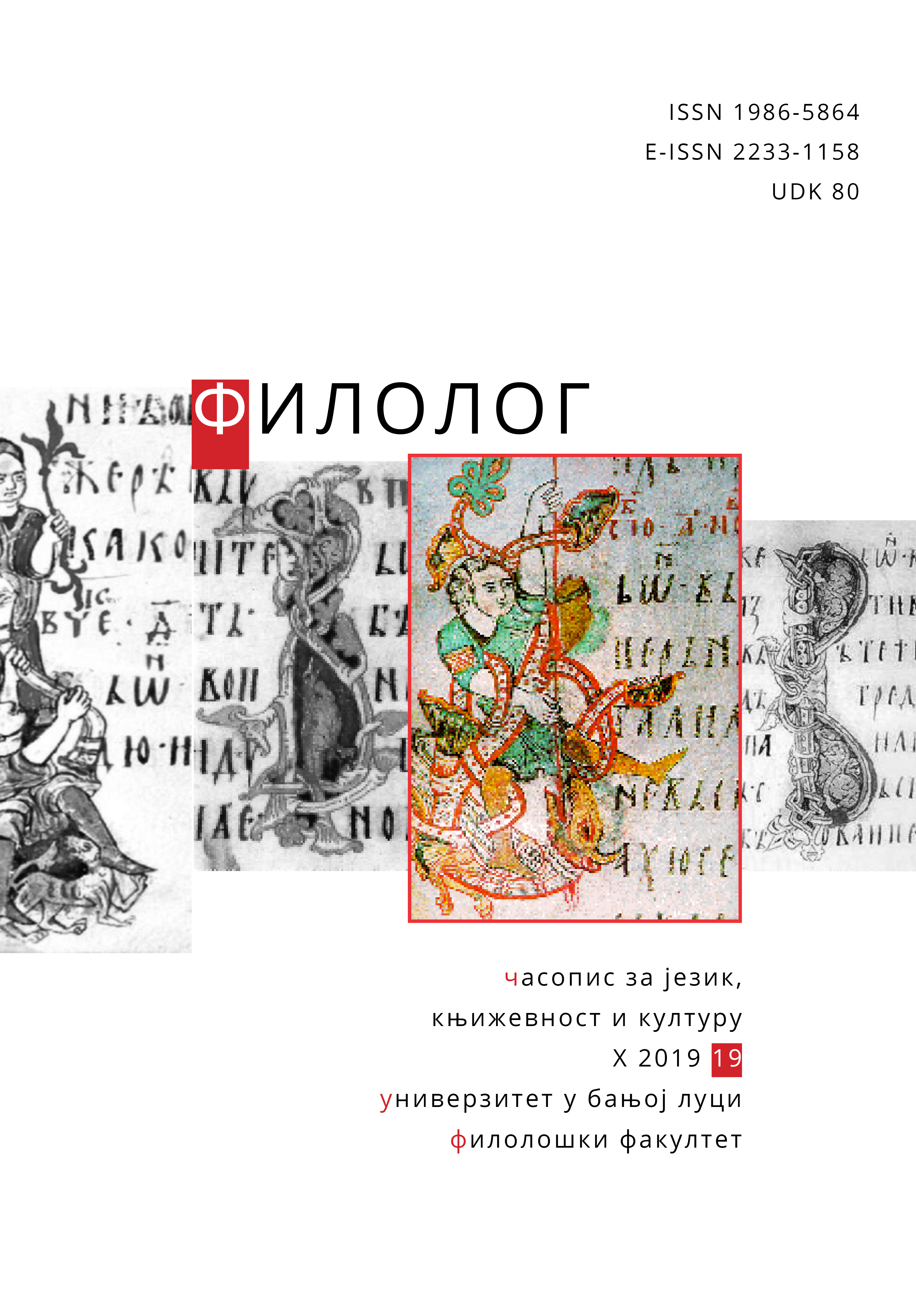Лексичке колокације са именицама herd, flock и shoal у енглеском и крдо, стадо и јато у српском језику – корпусна анализа
A Corpus-Based Analysis of Lexical Collocations with the Nouns Herd, Flock and Shoal in English and Krdo, Stado and Jato in Serbian
Author(s): Milica S. BacićSubject(s): Lexis, Semantics, Cognitive linguistics, South Slavic Languages, Philology, Phraseology
Published by: Филолошки факултет Универзитета у Бањој Луци
Keywords: collocation; collocate; collocational range; lexical compatibility; equivalence; corpus-based analysis; “phrasicon”;
Summary/Abstract: This paper deals with restricted lexical collocations which have the nouns herd, flock and shoal in English and krdo, stado and jato in Serbian as their secondary collocate. We use data from large-scale corpora (British National Corpus, Korpus savremenog srpskog jezika) to determine the frequency of these phraseological units in relation to the position of the nouns in their structure. The research presented is aimed at discerning patterns and limitations in the lexical compatibility of the nouns and assessing the degree of their equivalence in the two languages by comparing their collocational ranges. Basing our findings on quantitative and qualitative analysis, we conclude that the ranges primarily depend on the complex relationship of the semantic components in the meanings of the primary collocates, which is in turn governed by the speakers’ cognitive experiences about the categories of prototypical animals that live and move in large groups. For this reason collocations are not entirely fixed and only selectional preferences can be perceived. In addition, the results of the research confirm that collocations are a very complex category in the “phrasicon” of a language.
Journal: Филолог – часопис за језик, књижевност и културу
- Issue Year: 2019
- Issue No: 19
- Page Range: 315-332
- Page Count: 18
- Language: Serbian

